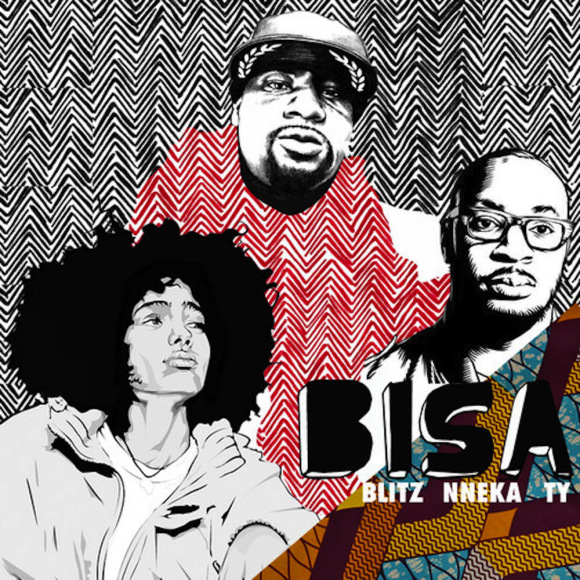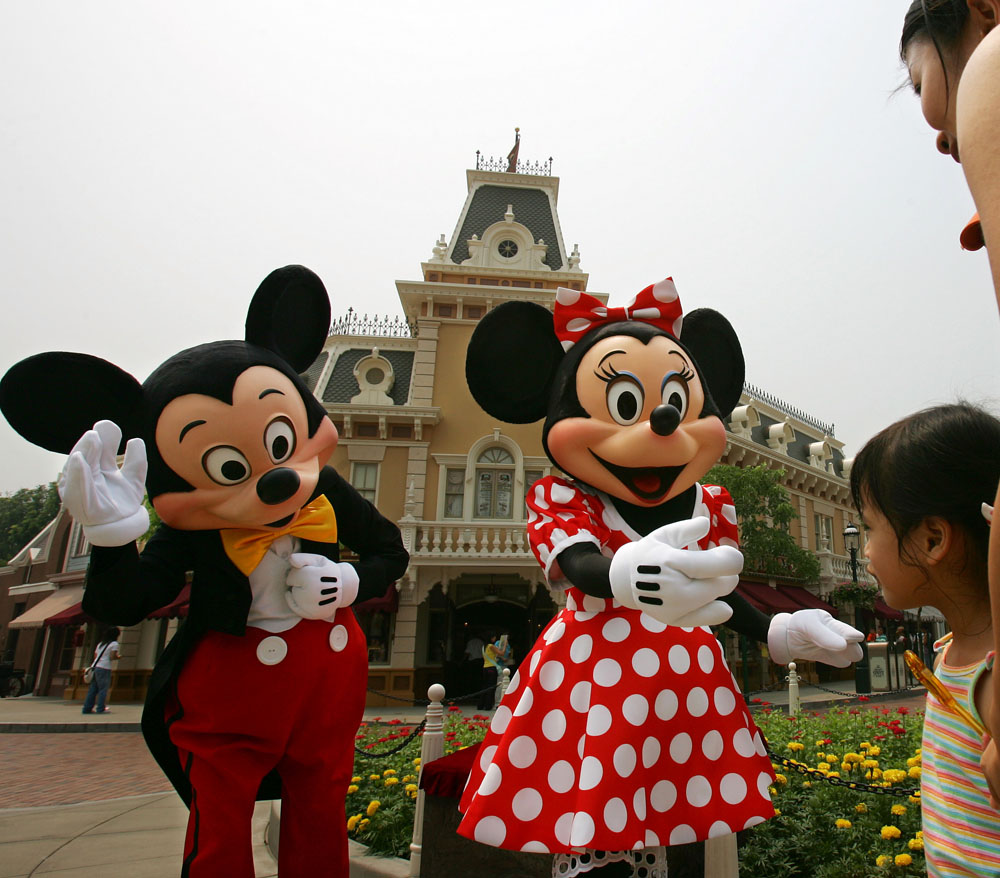Human Rights Watch has highlighted the plight of thousands of child labourers as young as eight who are mining gold in grim conditions in Tanzania.
Read the full story here.
Human Rights Watch has highlighted the plight of thousands of child labourers as young as eight who are mining gold in grim conditions in Tanzania.
Read the full story here.
The face of music in Africa is changing. Musicians are seeking alternative routes to the shoddy label of ‘world music’, and finding unprecedented levels of success in the process. There is a growing amount of independent artists who, through their ability to combine global influences with localised flavours, have figured out how to capture a wide-ranging legion of followers.
For this month’s post, I’ve mined some treasure to present the second edition of African musicians to look out for. We chart territory ranging from pop music in South Africa to post-Fela beats in Nigeria. I also got in touch with Brooklyn-based Ghanaian rapper Blitz the Ambassador whose free-to-download offering entitled The Warm Up was released on Tuesday.
Beatenberg – Chelsea Blakemore
Beatenberg comprises three South African lads whose latest single Chelsea Blakemore harvests from their backgrounds in jazz and electronic music to add to their growing catalogue of hauntingly evocative songs. These, in drummer Robin Brink’s words, are aimed at “everyone ready for a fresh South African pop sound.” The lyrics are playfully gutsy – or painfully ironic depending on how receives them. This particular song is named after vocalist/guirarist Matthew Field’s ex-girlfriend. “We’re all tight friends” asserts Brink. Ross Dorkins’ touch of bass adds to the song’s smoothness, making it a potential favourite at the country’s festivals during the upcoming summer. Their full length album will be released by Universal Records in 2014.
Zone Fam – Translate
Zone Fam is a Zambia-based rap group who has done well in penetrating the consciousness of audiences across the continent since their break-away hit Shaka Zulu on em hit airwaves two years ago. With a new single circulating and a new album in the works, it’s exciting times for the quartet comprising Dope G, Jay Rox, Yung Verbal and Thugga. They’ve been nominated for the African Entertainment Awards – a ceremony aimed at honouring “the rich culture of african [sic] art and entertainment” – under the best group category. Their sophomore album is due for release later on in the year. They follow up their party-centric Lobola with this subdued homage to body language.
Burna Boy – Run My Race
The solid, gliding patterns of Afrobeats have ensured that Fela Kuti‘s legacy continues to exist in modern pop music. While bands elsewhere are taking the Afrobeat staple refined by Kuti, artists on the continent have resorted to panel-beating the danceable aspects of the genre into a new wave of sound referred to as Afrobeats, a sub-genre described by Olufemi Terry as “African pop about women, parties and success” in an article published by South Africa’s Rolling Stone magazine. Commenting on the Kuti/Afrobeats relationship, Terry pondered whether the legend would turn in his grave were he to hear the sound he was linked to this sound.
Burna Boy, the Nigerian-born artist who sang “They say I sound like a combination of Sizzla and Fela Kuti” on My Journey, has decided to embrace comparisons to the latter. He went to the Afrobeat legend’s shrine, the Kalakuta Republic, for the video of one of his latest works. Entitled Run My Race, the song is best experienced in sweaty clubs along West Africa, and increasingly across the continent.
Blitz the Ambassador
“From Tahrir Square to Madison Square the streets are crammed, Revolution will not be televised or Instagrammed,” raps American-based Ghanaian rapper Blitz the Ambassador. He set aside time to chat about how his song Bisa (What [are] you asking?) got made. The result is a fierce socio-political manifesto featuring UK-based rapper TY and Nigerian vocalist Nneka.

“There were only two collaborations that were done in person. One was Nneka. That literally happened accidentally I recorded with her [over the] Internet for the actual album, ” Blitz the Ambassador explained.
“We facilitated that through the internet, it’s a brilliant song! I got to Paris; she just happened to be in town as well and wanted to link up. So I told her I was working and she came through to hang and say hello. She heard Bisa; I’d just started crafting it, and she was like ‘This is amazing, I’d love to jump on.’ I said: ‘Take a shot.’ That’s how the song ended up being made.”
Google is planning to add Somali, Igbo, Hausa, Yoruba and Zulu to its list of language options on Google Translate, the search engine giant’s free automatic translation service.
A post published yesterday on the Google Africa page on Google+ called on users to evaluate the translation quality of the five languages. After assessing passages that are translated into English and vice versa, users can rate them as Excellent, Good, Fair or Poor.
Google Translate already supports 71 languages but the possible inclusion of Somali, Zulu and other African ones has been met with wide approval and excitement. However, users have already pointed out that there are some tweaks needed. Here’s the system’s take on Igbo to English translation.
If you’d like to rate the translations, visit the Google Africa page.
Two men in Kenya have agreed to marry the same woman, taking turns to stay with her and helping raise her children.
Joyce Wambui had been torn between two lovers for more than four years and was unable to choose between them. So she joined in a contract stipulating that Sylvester Mwendwa and Elijah Kimani would “share” her.
But Mwendwa’s decision to go public about the unusual deal has infuriated Wambui, cost him his job and forced him into hiding to escape a public backlash in Kisauni, Mombasa.
The 26-year-old told the BBC that he entered a pact with Kimani to end their rivalry. “It could have been very dangerous if the other man would have come to her house and caught me,” he said. “So our agreement is good as it sets boundaries and helps us keep peace.”
He claimed Wambui’s parents had given her their blessing, adding: “She is like the central referee. She can say whether she wants me or my colleague.”
Wambui, a widow and mother of young twins, is said to be in her late 20s. In a separate interview with Kenya’s Daily Nation newspaper, Mwendwa explained: “It’s not because she is a superwoman, but because she is a hard worker and very beautiful.”

The unusual arrangement came about after the intervention of Abdhallah Abdulrahman, a community policing officer. “The two men were quarrelling and I wanted to know what they were quarrelling about,” he said. “I found out they were sharing one woman without knowing each other. I wanted the woman to decide which she loved and agree to stay with one. Unfortunately, she refused to decide. She said, ‘I love both of them, I’m not ready to lose them.’
“Both men refused to surrender the woman. They assured me they’re going for a discussion where they’ll settle the differences themselves. They surprised me when they said they had agreed to be together.”
Abdulrahman said he was strongly opposed to the contract. “To me as a Muslim and a Kenyan, I don’t accept it,” he added. “It is against our religion and our African tradition. It is against Kenyan law. Under our Constitution it is not allowed. The community are disappointed and everybody is against it. Sylvester Mwendwa is now in hiding, saying his life is in danger.”
Mwendwa’s willingness to publicise the contract in national and international media has also caused a rift with Kimani and Wambui, putting the whole understanding in jeopardy. On Tuesday the Daily Nation reported that Mwendwa, a butcher, said his boss fired him after he heard the story, and he is reported to have gone into hiding.
Even if Wambui forgives him, there is little prospect of making the three-way marriage legal. Whereas polygamy – one man with multiple wives – is legal in Kenya and widely practised by various communities, polyandry is almost unknown.
According to Kenya’s NTV station, the contract states: “We have agreed that from today we will not threaten or have jealous feelings because of our wife, who says she’s not ready to let go of any of us. Each one will respect the day set aside for him. We agree to love each other and live peacefully. No one has forced us to make this agreement.”
David Smith for the Guardian
The formula has worked in California, Florida and Paris. Now officials in Zimbabwe, eager to rebrand a country notorious for economic collapse and political violence, want to build a “Disneyland in Africa”.
Walter Mzembi, the tourism and hospitality minister, told New Ziana, the official news agency, that the government was planning a $300m theme park near Victoria Falls, the country’s top tourist attraction.
Mzembi was quoted as saying the resort would be a “Disneyland in Africa”, although he did not appear to suggest that the statue of explorer David Livingstone, which overlooks the falls, would be supplanted by a jobbing actor in a Mickey Mouse costume.

Instead, he outlined plans for shopping malls, banks and exhibition and entertainment facilities such as casinos. “We have reserved 1 200 hectares of land closer to Victoria Falls international airport to do hotels and convention centres,” Mzembi told New Ziana on the sidelines of the UN World Tourism Organisation (UNWTO) general assembly , which Victoria Falls is co-hosting with the town of Livingstone in neighbouring Zambia.
Mzembi said the project would cost about $300m.
“We want to create a free zone with a banking centre where even people who do not necessarily live in Zimbabwe can open bank accounts,” he said.
The government has plans to invest $150m in expanding the town’s airport to accommodate bigger aircraft, according to the report from Ziana. Mzembi said the government had found funding partners including multilateral financial institutions.
Visitors travel from across the world to see Victoria Falls where water plummets more than 100 metres into the Zambezi gorge, generating mists of spray so high they can be seen up to 30 miles away. A bridge linking Zimbabwe and Zambia offers bungee jumping but made headlines for the wrong reasons last year when an Australian tourist narrowly survived her cord snapping.
The nearby town offers few reasons to linger or spend money, however, despite the launch last month of an open-top bus tour in an attempt to drum up interest. Mzembi hopes to appeal to a younger market.
Tourism conference
Zimbabwe’s considerable tourism potential was devastated by a decade of conflict and hyperinflation but has recovered in recent years. The government says it recorded a 17% increase in tourist arrivals in the first quarter of 2013, up 346 299 to 404 282. It has predicted the tourism sector will contribute 15% to GDP by 2015 if the country remains stable.
Following a mostly peaceful, though bitterly disputed, election last month, Zimbabwe’s co-hosting of the UNWTO conference this week is seen as another milestone towards that stability. But the decision to award the conference to Zimbabwe as a co-host was condemned by the independent UN Watch human rights group as a “disgraceful show of support — and a terribly timed award of false legitimacy — for a brutal, corrupt and authoritarian regime.
Hillel Neuer, head of the Geneva-based group, added: “Amid reports of election rigging and continuing human rights abuses, Zimbabwe is the last country that should be legitimised by a UN summit of any kind. The notion that the UN should spin this country as a lovely tourist destination is, frankly, sickening.”
President Robert Mugabe’s associated status as UN “leader for tourism” has also been questioned by critics of his 33-year rule.
David Smith for the Guardian